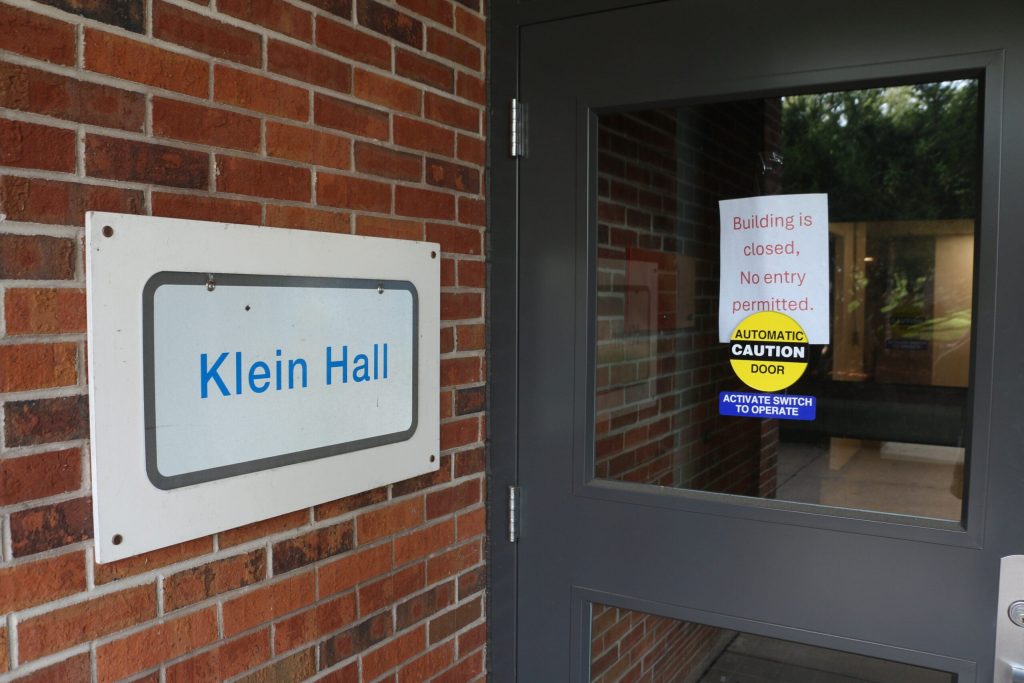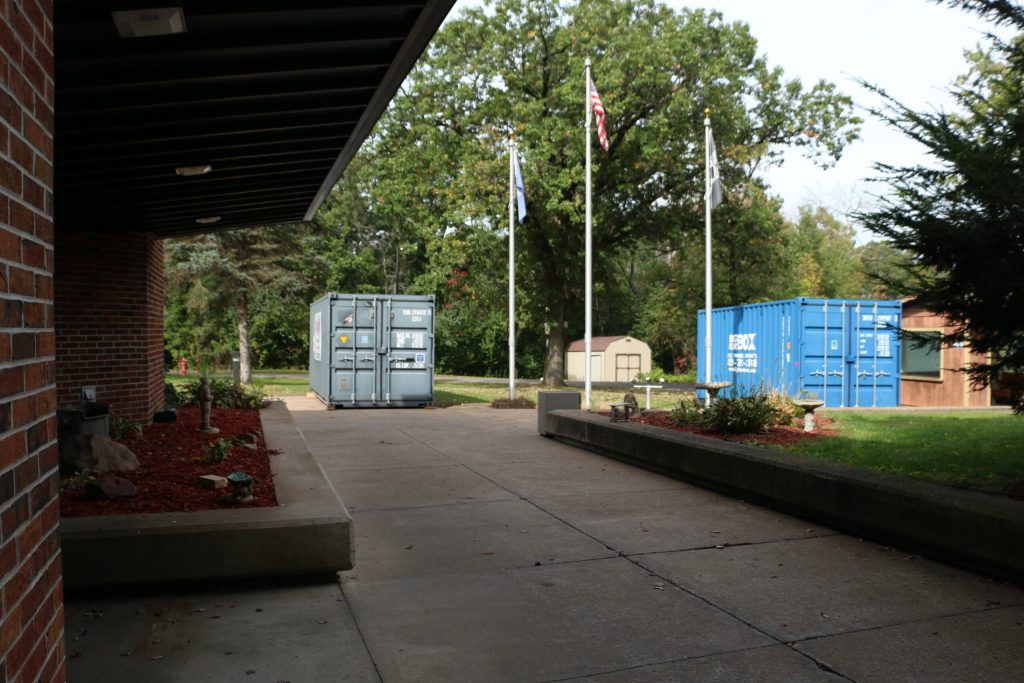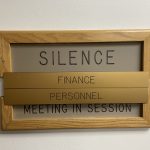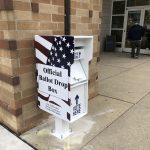Veteran Housing Facilities in Green Bay, Chippewa Falls Close
Republican and Democratic lawmakers continue pointing fingers over who is to blame.

On Sept. 30, the Wisconsin Department of Veterans Affairs closed Klein Hall in Chippewa Falls, which offered transitional housing and substance abuse recovery services for veterans. The closure was due to a budget deficit and a political impasse between Gov. Tony Evers and Republican state lawmakers over a request for an additional $1.9 million in state funding to keep Klein hall and similar facility in Green Bay open. Rich Kremer/WPR
Facilities assisting homeless Wisconsin veterans in Chippewa Falls and Green Bay have closed and — as of Tuesday — their funding officially ran out.
The Veterans Housing and Recovery Program locations provided transitional housing, job training and substance abuse counseling in the northern Wisconsin cities with a goal of helping veterans become stable enough to find permanent housing.
Gov. Tony Evers included the additional funding in his proposed budget, but it was pulled by the Republican-led Joint Finance Committee. An unexpected budget deal struck between Evers, Republicans and Democrats in the state Legislature also didn’t include the veteran housing funding. During debate on the Senate floor, Democrats tried to include additional funding with an amendment, which was rejected by all but one Republican.
WDVA Assistant Deputy Secretary Joey Hoey told WPR the department began winding down the facilities when the final budget was signed by Evers on July 3, “because we realized we didn’t have the money.” That meant transitioning around 40 veterans from the facilities in Green Bay and Chippewa Falls to other locations, including the last remaining veteran housing and recovery program facility in Union Grove, and other programs in Wisconsin, Minnesota and Michigan.
“No veterans were put out on the street,” Hoey said. “We worked diligently to give them multiple options of different types of programs, either veteran specific or not.”
While that was happening, competing bills from Republican and Democratic legislators were introduced to provide the additional $1.9 million for the veteran housing facilities. As of Tuesday, when both the Green Bay and Chippewa Falls buildings officially closed, neither bill had been scheduled for a public hearing.

Two shipping containers sit next to a former veteran housing and recovery program facility in Chippewa Falls. Amid an ongoing deficit and a political impasse over a request for an additional $1.9 million, the facility and another veteran housing program in Green Bay officially closed Sept. 30. Rich Kremer/WPR
During a Tuesday press conference, Senate Minority Leader Dianne Hesselbein, D-Middleton, said the closures fall squarely on Republicans’ shoulders. She said the presser wasn’t about “partisan finger pointing,” but rather “just stating the facts of the timeline, which led us to where we are today.” Hesselbein also said restoring the veteran housing program funding was included in the state budget negotiations she was part of.
In a joint statement, Sen. Howard Marklein, R-Spring Green, and Rep. Mark Born, R-Beaver Dam, the co0chairs of the Legislature’s budget committee, dismissed Hesselbein’s claim and past comments from Evers. They said the “attack on the Legislature for not approving a more than doubling of the funding for the Veterans Housing and Recovery Program is simply disingenuous.”
“Our budget provided over $40 million to support new and existing veterans programs in our state, including $5 million to support our state’s veterans homes; $2.5 million to support the Veterans Community Project which provides housing and support services for veterans; and a nearly 15% increase in the Veterans Housing and Recovery Program, among others,” the joint statement said.
Born and Marklein also said during “weeks” of state budget negotiations with Evers, the topic didn’t come up and claimed the governor is “looking for a scapegoat to blame” for his failure to manage changes in the program.
A separate statement from state Sen. Eric Wimberger, R-Oconto, said the Legislature gave enough money to support the veteran housing program “and Governor Evers simply refused to spend it.”
“The closing of veterans’ homeless shelters is his (Evers) decision alone, and he quite literally is refusing to use available funding in the exact same manner as he did last year to run those facilities,” Wimberger said.
In a letter sent to Evers on Sept. 10, Wimberger claimed Evers could move money from separate budget appropriations like the state’s veterans trust fund to bolster the program, and had done so in the past. He also contended the governor could “re-obligate” federal COVID-19 stimulus funds to keep the facilities in Chippewa Falls and Green Bay open.
Veteran transitional housing programs in Chippewa Falls, Green Bay close doors was originally published by Wisconsin Public Radio.
If you think stories like this are important, become a member of Urban Milwaukee and help support real, independent journalism. Plus you get some cool added benefits.





















